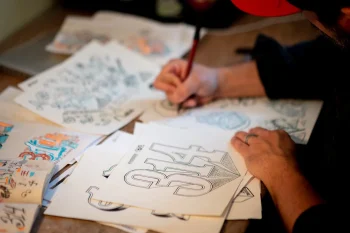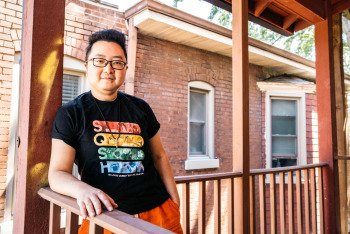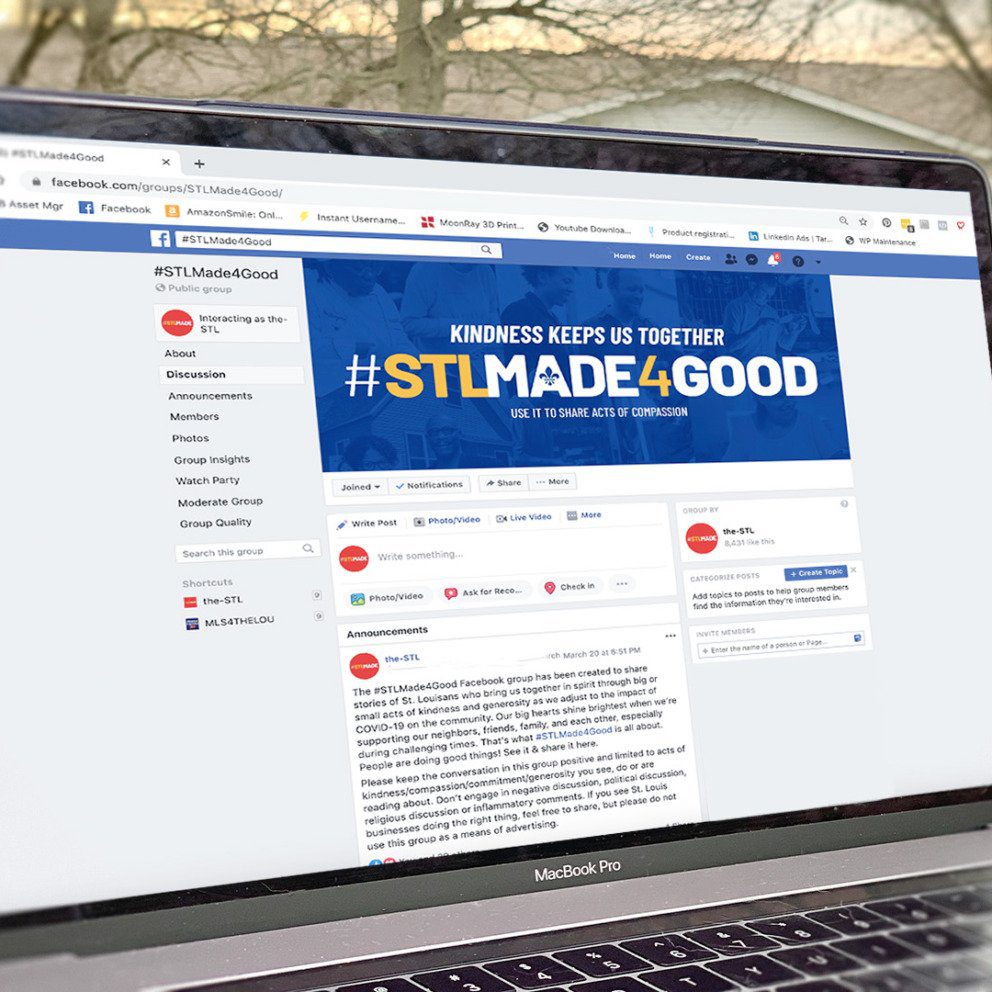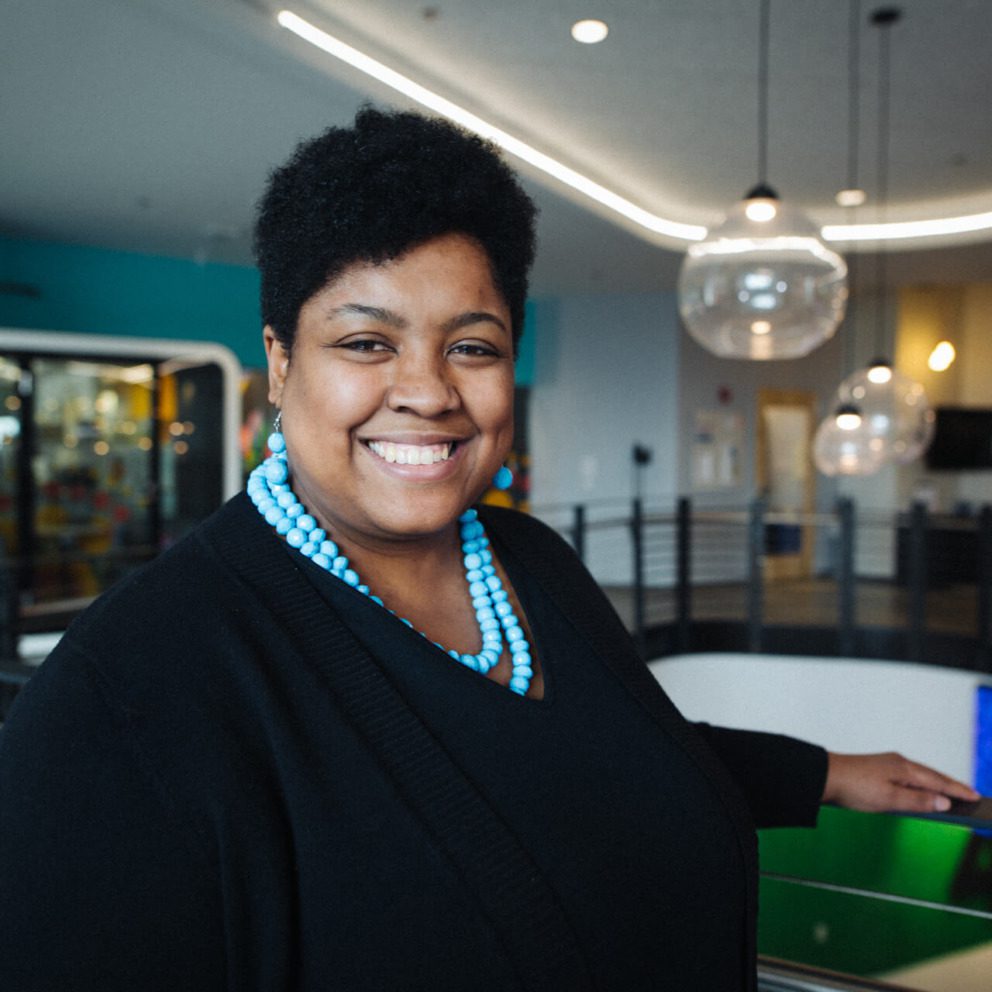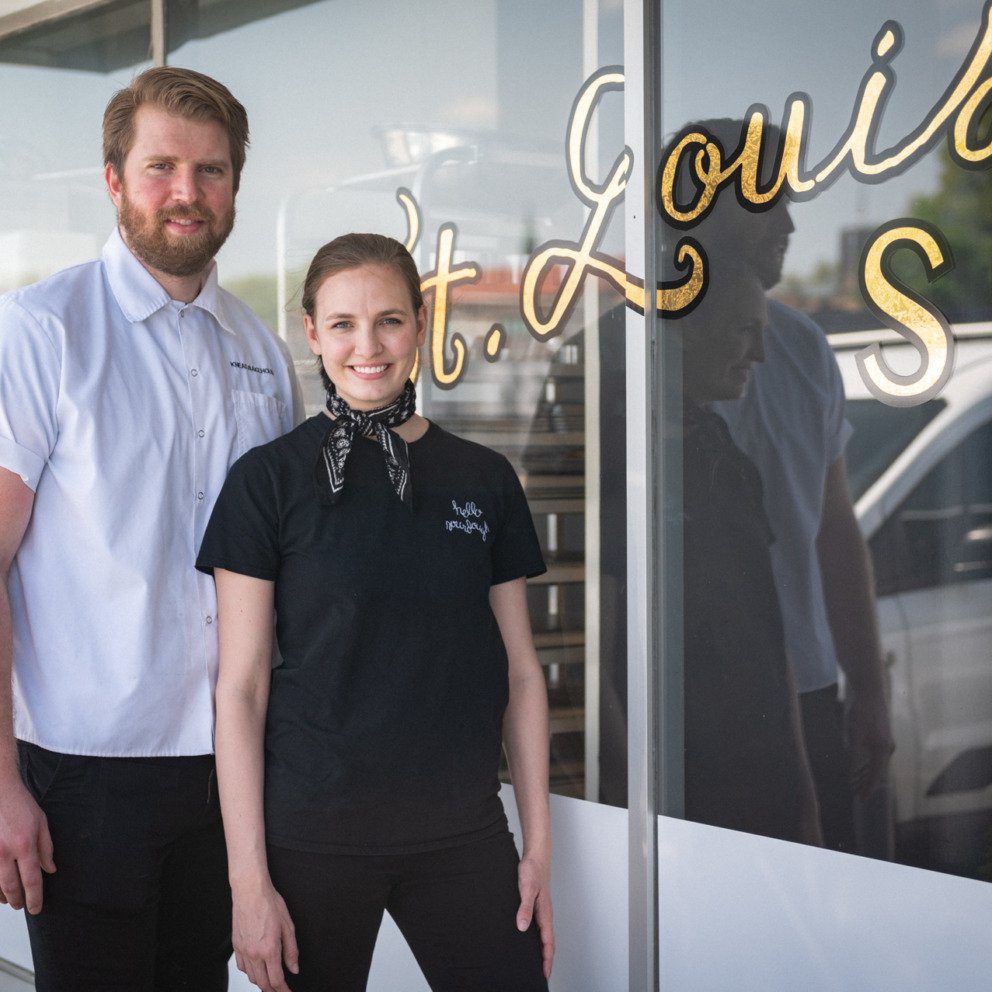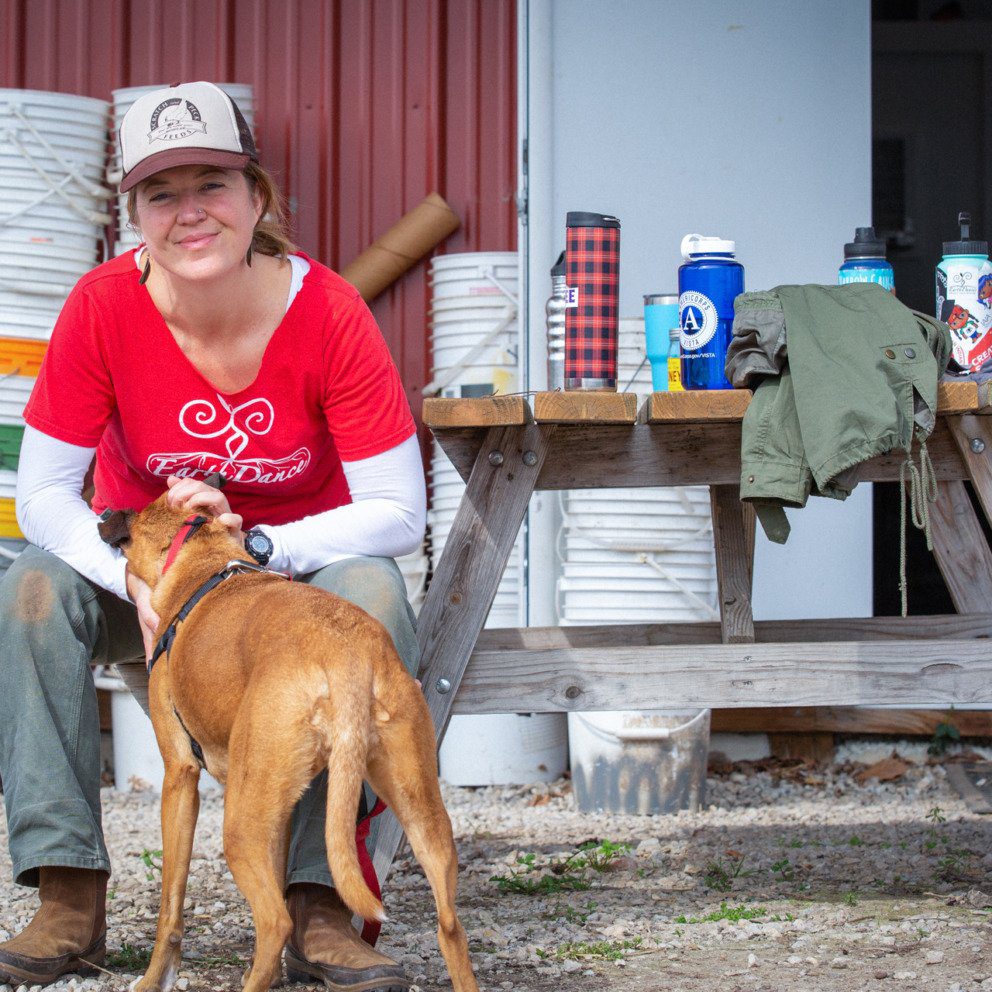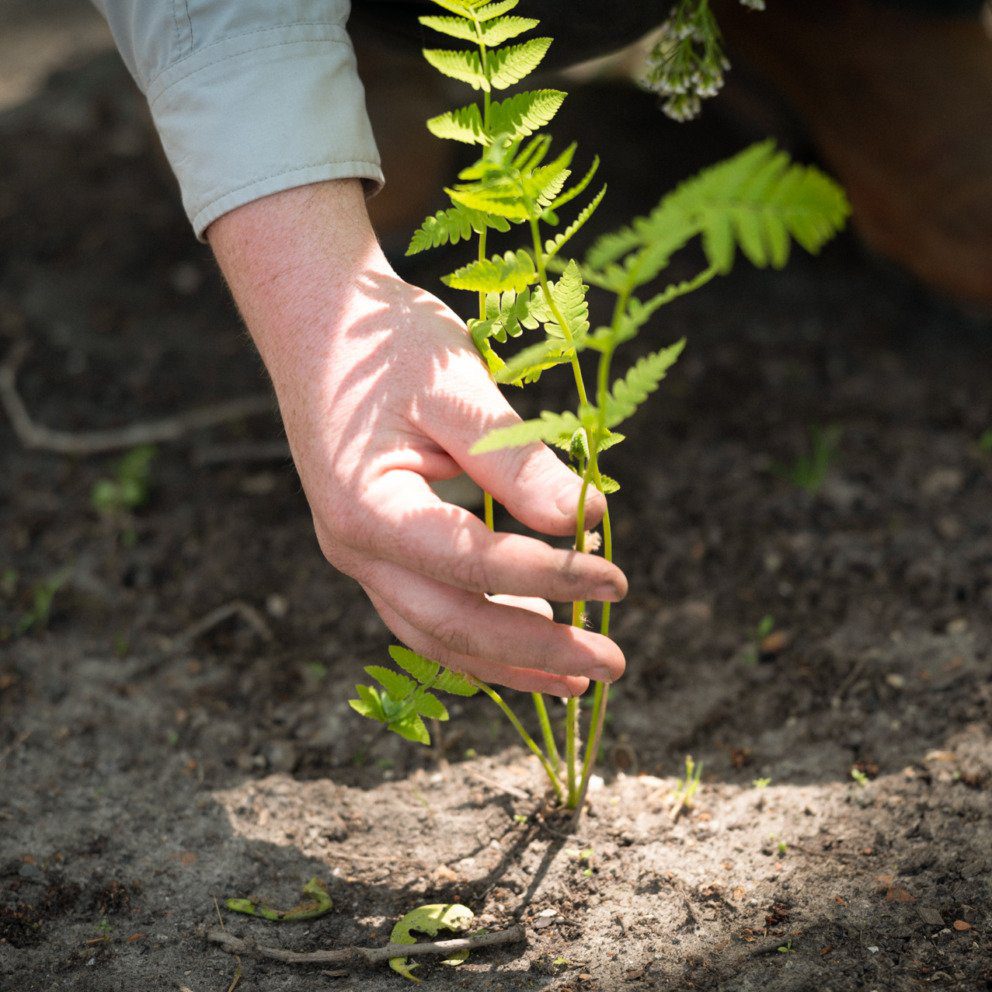Learning Through Play
Therapists who work with children on the autism spectrum shift their delivery methods to support families during the pandemic.
Amanda Wingertsahn radiates positivity, greeting a child with a brilliant smile. While she’s wearing a mask to help prevent the spread of the coronavirus, it’s a specially crafted one with clear plastic in the middle that lets her smile shine through. Helping children on the autism spectrum recognize and demonstrate facial expressions is a big part of what Wingertsahn does as a speech-language pathologist trained in the Early Start Denver Model, a play-based, child-led early intervention for children from twelve months to five years old.
“Autism is a neurological disorder. It affects one in 54 children in the United States,” Bridget Hormberg, occupational therapist, explains. “It’s also a developmental disorder, which means it impacts children in a variety of ways; no one child is impacted in the same way. So they might have delays in social skills, communication skills, but there’s a lot of hope for this diagnosis and lot of proven therapies that can help kids jump back on track in terms of development.”
The two therapists had seen firsthand how successful the Early Start Denver Model was in helping children with autism get back on track developmentally, but didn’t see that the highly personalized, one-on-one therapy needed to make these gains was readily available in St. Louis. So in 2016, Blue Stars Therapy was born.
“We’ve worked in various settings, school and outpatient, big clinics, and sometimes you can just get caught up in this cookie-cutter, one-size-fits-all approach to therapy, and we really wanted to do something different,” says Hormberg.
Hormberg and Wingertsahn were the only two Blue Stars Therapy providers for about two years, but after hiring their first employee in 2018, they’ve continued to expand and currently have 15 employees. In February 2020, they expanded from direct therapy in homes and schools to opening the Blue School, which allows them to provide more therapy hours for those children who need it.
“We put a lot of intentionality and thought behind it because we wanted it to feel like an extension of a family’s home. We didn’t want it to feel cold or sterile like a typical clinic might feel,” says Hormberg. “The emphasis on individualization of treatment plans, parent involvement and just fitting within the framework of whatever is actually happening in that child’s life, was a big driving factor in opening the Blue School.” When school can resume, they plan to add additional classrooms to the Blue School’s University City location, and already have a waiting list of students.
Therapy in Quarantine
When the pandemic hit in March, both direct therapy and classes at the Blue School paused. Wingertsahn and Hormberg had to quickly figure out how to continue helping children whose lives had been disrupted – and while everyone has been affected in some way by the pandemic, many children with autism are especially affected by changes to routine.
“A lot of children with autism thrive when there is a routine in place, when they know what to expect, when things are predictable,” Hormberg says. “We do that in therapy. We help parents see that and create a certain routine so they can be successful. They know what happens next. There’s no underlying anxiety about ‘what happens after I brush my teeth?’ or ‘where do I go today?’ So when you have a big shift, like we’ve all experienced with the pandemic, I think that’s just unsettling, like it is for everyone. So we’ve been working with parents a lot on: well, this is chaotic, but how can we create some predictability within the day?”
The way that Hormberg, Wingertsahn and other Blue Stars therapists have been working with children and families has drastically changed since St. Louis City and County governments recommended that St. Louisans stay home. The therapists are now using telehealth through remote platforms to communicate with parents and children. While they miss the real-life, personal interaction, they’re focusing on the silver lining. “What’s good about it, is the level of parental involvement is increased, and so we’re shifting our focus away from the relationship between the therapist and the child to that triangular relationship of therapist, parent, child,” says Hormberg.
“We are seeing it as an opportunity to help coach parents where maybe we didn’t have those opportunities before,” Wingertsahn says. “So now if a parent has concerns for mealtime, we can say ‘Great, show me.’ And they can pop up on the laptop or open their phone or a tablet and we are absolutely able to see what that routine looks like and jump in. A parent might have ear pods they could put in, and we can say, ‘Try this instead.’ So it’s like live coaching, and in the best possible format, because we are able to see from a bird’s eye view into the home and what those routines really look like.”
Play: The Occupation of Childhood
Both Hormberg and Wingertsahn emphasize that while parents of kids with special needs may now feel like they need to fill the roles of parent, teacher and therapist, it’s best for the child if the parent just focuses on being a parent. “So many parents do want to step into that therapist role and actually we’re telling them, ‘Do the opposite. You’re a mom, you’re a dad, you’re a grandma, so be that.’ And I think what’s unique about the type of therapy we deliver is we’re creating learning opportunities in the child’s natural environment and natural routines of the day and just through play. So we’re saying, just have fun, step back, relax, you don’t have to recreate what we do for your child to learn.”
Parents may also think that learning takes place at a desk or a table, with a worksheet, but there are lots of ways for children to learn. “Learning doesn’t always have to take place at a table or on the floor with a toy, learning takes place outside, too,” says Wingertsahn. “And if your child wants to be outside and singing songs, there’s just as many learning opportunities in that as there are inside at the table.”
“Play is an occupation of childhood,” explains Hormberg. “The majority of learning happens in play. It’s a chance to practice real life scenarios.”
Adapting to the New Normal
While telehealth has allowed Blue Stars Therapy to continue services through the pandemic, Hormberg and Wingertsahn look forward to when it’s safe to resume in-person therapy and are making plans for how to do so. In addition to acquiring masks that are clear in the middle so the therapists’ mouths and facial expressions are visible, they’re adapting their space, schedules and routines at the Blue School.
“We are expanding in our office two different areas, so not as many adults with children will be in the same space. We are also going to stagger our routines such as our snack time,” Wingertsahn explains. “We’re also going to be having more opportunities for children to wash their hands, which is a great natural routine and something that we can teach and have learning opportunities throughout.” She encourages parents to begin wearing masks at home occasionally, and to have their children put masks on teddy bears or baby dolls to help normalize mask-wearing.
As parents may struggle to explain the changes of the pandemic to their children, Wingertsahn sees it as a perfect example of how to teach through play. “You can take little people and have the little people washing their hands more. Or you play with the little people at a table, and you spread them out a little bit more. And that’s maybe a way you could explain social distancing,” she suggests.
“Everyone Should Have This”
When Hormberg and Wingertsahn first saw how effective the Early Start Denver Model therapy was, they were driven to do what they could to ensure that families at different income levels could have access to it. “That really drove us in partnering with various programs,” Hormberg says. “With the state of Missouri, we partnered with Missouri First Steps, we’re an ancillary provider for them. So what that means is families can access our therapy through the early intervention program through the state. That helps reduce costs for them because this is an expensive intervention. But this makes it really accessible to everyone regardless of where they live, how much they make, anything like that. So that was really important to us.”
While the pandemic has presented unique challenges for therapy, Hormberg and Wingertsahn are committed to helping children (and their parents) gain the skills they need to be successful.
“I love the chance when I can connect with a new child that I haven’t met or when I can figure out what makes them tick. And I love to bring the parent along on that process with me so we can kind of all learn together,” Wingertsahn says.
“I think parents are their child’s first and best teacher, and I want to help them realize that through the strategies that I know work. I think that that moment when a parent realizes, ‘wow, I can do this, too. My child is learning from that therapist, maybe they can learn from me.’ That is the moment that I just kind of live for, and I want to bring that feeling and that opportunity to every family.”
Join the Story
- Learn more about what Blue Stars Therapy and the Blue School offer on their website.
- Join the #STLMade4Good Facebook group to share stories of kindness, generosity and creativity.
